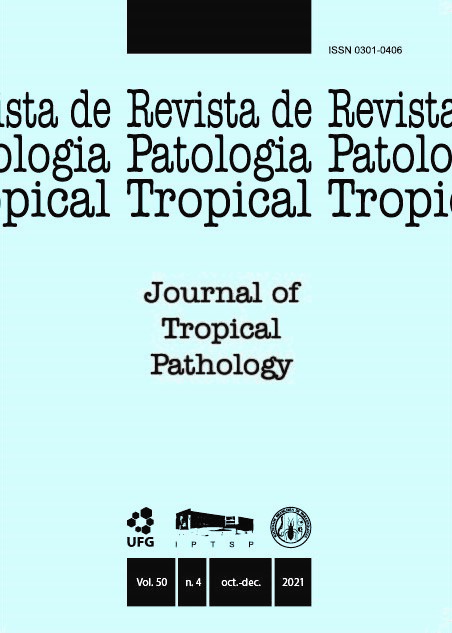Educational intervention on scholar’s knowledge regarding schistosomiasis in a riverside community, northeastern Brazil
DOI:
https://doi.org/10.5216/rpt.v50i4.70468Resumo
Schistosomiasis is still a serious public health concern in Brazil and Sergipe State presents the highest prevalence rate of the disease. Brazil implemented the Schistosomiasis Control Program (PCE) with several strategies to control the disease, including health education actions in endemic areas. Herein, we assessed the impact of an educational intervention on knowledge concerning schistosomiasis in students from a riverside village of Sergipe, Northeastern Brazil. The study was carried out in 3 phases. 1) A questionnaire was applied to assess the students’ knowledge about the biological, clinical, and epidemiological aspects of schistosomiasis mansoni (pre-test). 2) Next, an educational intervention was conducted. Pamphlets about schistosomiasis were distributed to the entire school community, who were then invited to a lecture. 3) A post-test was performed using the questionnaire to assess acquired knowledge. 151 elementary school students were interviewed. 2.6% of the pre-test students and 4.3% of the post-test group had already been diagnosed with schistosomiasis. In the pre-test, only 24.5% knew the cause of the disease and 48.3% the transmission sites. In the post-test, 74.3% (OR= 8.9; p-value<0.0001) knew the etiology and 77.1% the possible transmission sites (OR= 3.6; p-value<0.0001). There was also significant improvement in knowledge regarding signs, symptoms and prophylactic measures. Most students were unaware of the risk of reinfection by Schistosoma mansoni after treatment. The educational intervention proved quite effective in increasing information on schistosomiasis. These results reinforce the importance of health education as an auxiliary tool in the control of schistosomiasis.
KEY WORDS: Schistosomiasis mansoni; health education; schoolchildren; neglected tropical diseases; Brazil.
Downloads
Downloads
Publicado
Como Citar
Edição
Seção
Licença
The manuscript submission must be accompanied by a letter signed by all authors stating their full name and email address, confirming that the manuscript or part of it has not been published or is under consideration for publication elsewhere, and agreeing to transfer copyright in all media and formats for Journal of Tropical Pathology.

